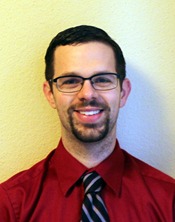Program Information
What Can the Medical Physics Field Learn From the Open Source Hardware Community?
L Wootton*, F Therriault-Proulx , S Beddar , UT MD Anderson Cancer Center, Houston, TX
Presentations
SU-E-P-23 (Sunday, July 12, 2015) 3:00 PM - 6:00 PM Room: Exhibit Hall
Purpose: To introduce the Medical Physics community to the up-and-coming open hardware movement, and discuss what lessons can be learned from it and how it could be useful to our field.
Methods: By definition, open source hardware is “hardware whose design is made publicly available so that anyone can study, modify, distribute, make, and sell the design or hardware based on that design”. Arduino microcontroller boards and the evolution in 3d printing technologies are among the most successful open hardware examples. These examples showed that both collaboration and competition are factors facilitating and accelerating innovations. They also help universalizing research by decreasing costs and enabling higher-level manufacturing. Participation in open source projects in academia has also shown to have multiple advantages. The project gets massively peer reviewed through its online publication, and the comments generally lead to improvement of the design and better performance. It also increases the visibility of the work, therefore increasing the chance for citations and funding.
Results: The development in-house of a motorized detector positioning device that can be mounted to a water tank will be open-sourced and presented as an example of open source project that could be useful to others in the Medical Physics field, whether it is for research or clinical work. The common aspects to share when open-sourcing a project will be discussed. A device for regulating the temperature inside a water phantom will also be presented and open-sourced to the community. Finally, the development of a project-sharing web platform specially designed for the Medical Physics community will be discussed.
Conclusion: The open source hardware movement is gaining in popularity and the Medical Physics field could benefit from a similar collaborative open-framework. It would definitely help driving and accelerating innovations in the field as well as decreasing some of the associated costs.
Funding Support, Disclosures, and Conflict of Interest: Part of this research was supported by the Odyssey Program at The University of Texas MD Anderson Cancer Center.
Contact Email:


